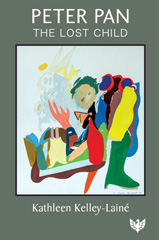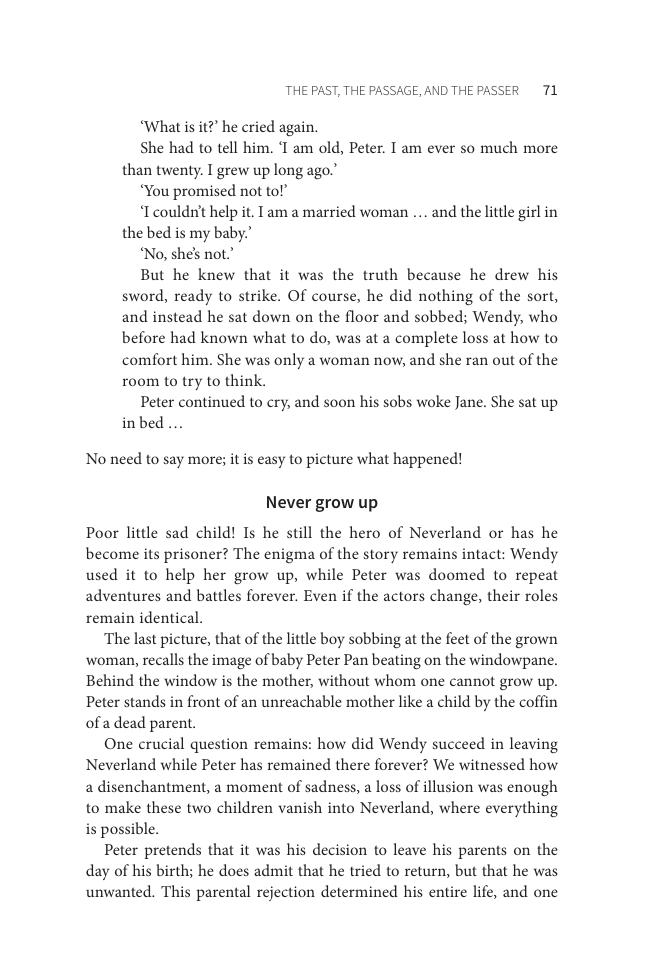Peter Pan the Lost Child
176 p.
Originally published in 1992 in French as Peter Pan ou l'Enfant Triste, the book was translated into English in 1997 and released as Peter Pan: The Story of Lost Childhood. This new English language version is translated by author Kathleen Kelley-Laine and enriched with the addition of an epilogue from the author plus a new foreword from renowned psychoanalyst Jonathan Sklar. Peter Pan, "young innocent and heartless", with his baby tooth smile is one of the most popular heroes of fiction of both children and adults for over one hundred years. The author explores this mythical figure, both as a story as well as a metaphor, revealing the hidden traumas and psychological conundrums of this "Lost Child". The evocative and lyrical style takes the reader through multiple levels of understanding of this seemingly simple "fairy tale", into the tragic story of its author J. M. Barrie and of other Peter Pans who never grow up. In Peter Pan, the Lost Child, psychoanalyst Kathleen Kelley-Laine explores Peter Pan's ligh
t-hearted escapades and uncovers a sad, lost child behind the 'baby tooth' smile. She uses the story as a framework for the stories of her patients to show how their own Peter Pan manifests, giving a unique insight into how childhood events can block growth into adulthood. She also investigates the sinister side of author James Mathew Barrie as it relates to his Peter Pan tale, and addresses her own family history and its links to The Boy Who Would Not Grow Up. Little by little, as the book progresses, Kelley-Laine's lost childhood emerges as a child who fled with her family from war-torn Hungary after the Second World War to the 'promised land' of Canada. These three interwoven storylines take the reader on a literary journey to uncover secrets and hidden emotions. Kelley-Laine makes clear that the child who cannot grow up, the Peter Pan raging inside the adult, needs to be heard and understood. Only then can that lost child have a chance to find the road to maturity. [Publisher's text].
Special access authorizations may apply; please contact us for further information.
-
Information
ISBN: 9781800130821
DISCIPLINES



